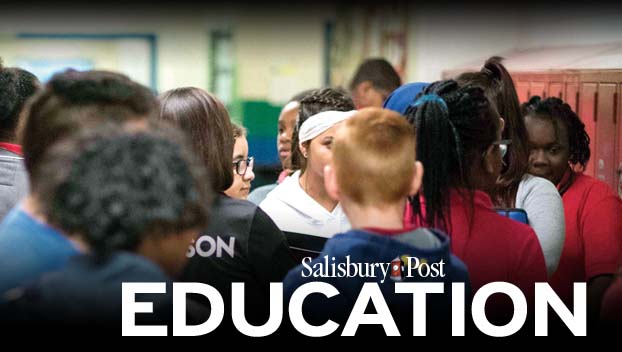Homeschools not immune to effects of COVID-19
Published 12:10 am Sunday, August 2, 2020
By Carl Blankenship
carl.blankenship@salisburypost.com
SALISBURY — When public schools shut down in March, local homeschoolers found their own programs disappearing as well.
The Rowan County Home School Association organizes field trips, social events and its own sports teams for its member families. All of those programs, like those hosted by public school districts, were canceled. They’re are still on hold due to the COVID-19 pandemic. If you look at the association’s calendar, it is empty.
The difference, RCHSA co-founder Charles Nettles says, is homeschool students did not lose instructional days because of the pandemic. There are no snow days for homeschool students, he says.
To the extent instruction was affected, parents had to develop curriculum after homeschool co-ops canceled activities. William Brown — a homeschool parent, RCHSA member and past president — said his children are involved in those co-ops, which allow delivery of some subjects for homeschool students in a classroom setting at a local venue like a church.
“Some of those were canceled for the spring semester,” Brown said. “My wife, who’s the primary educator, had to make up those things in other ways. We also received word that one of those co-op situations is now canceled for the fall semester. My daughter, who is a rising senior, was going to get her science requirement in that setting. Now we’re going to be scrambling to cover that from another resource.”
RCHSA President Gina Blandino said her students have been affected by cancellations as well. Right now, the association is in planning stages to make up for creative ways to deliver some group education to families. It’s yet-to-be-decided how that instruction will be delivered — web conferencing, meeting in small groups or outdoor settings or something else.
“We looked at all those kinds of ideas to make sure our children are still getting out in the world and seeing their friends,” Blandino said, adding they want to keep the children as safe as they can.
Blandino said every family is treated as an individual home school and most families are still making instruction work, though every year some families are looking at all their options to choose what they feel is best for their kids.
And to be clear, homeschooling is no small fad in Rowan County. In 2019, there were nearly 3,000 students learning via homeschool. Homeschool, and methods that look more like traditional homeschool also have become more popular. In 1985, there were 809 homeschool students in North Carolina. Ten years ago, there were 81,509. In 2019, there were 149,173.
Blandino, like other homeschool parents, pointed to the freedom homeschooling provides as a draw.
Homeschool students are not held to a schedule the way public students are, and that means a homeschool family can take vacations at more times during the year. Nettles described going to Walt Disney World in November when the weather is fair and the crowds are thin.
Nettles said association members only make up part of the homeschools in the county. He pointed to the presence of local religious groups as the reason for the county’s disproportionately high number of homeschool students. Durham County, for example, which has nearly twice the population of Rowan, only had 2,536 homeschool students in 2019. In 2019, 56.5% of homeschools in North Carolina had a religious affiliation.
Nettles said his family was interested in homeschooling because it meant spending more time with their children and imparting their Christian values to them. He also pointed to other advantages like a flexible schedule.
When Rowan-Salisbury Schools closed, it had to create an emergency plan to continue educating students from home. Now, to cope with the uncertainty of COVID-19, the district has created a virtual academy that’s drawn more than 3,000 students. High school students can also enroll virtually through their schools. And while virtual students will be learning from home, it is not the same as homeschool. There will still be public school teachers teaching the courses electronically to full classes of students who will adhere to the schedule laid out by the school.
Nettles, who lobbied for the contemporary homeschool laws in North Carolina in the 1980s, said he believes the homeschool laws in North Carolina are fair and equitable, but they come with some rules. He said a homeschool student could technically enroll in a single class through the virtual school and still be excluded from RSS’ enrollment counts, but taking on more could reclassify that student as a public school student and result in treading through some legal gray areas. Similarly, homeschool and class co-ops the association organizes are intended for association students only.
If a student who is supposed to be homeschooled is suddenly treated as a public school student by the state, that student could be considered truant, Nettles said.
Virtual school is not a new concept. Connections Academy has been providing online school as an option for public school students since 2015. Brown said there are already other public and private options available to homeschool families.
Nettles and his wife have homeschooled their eight children for the past 35 years and decided to do so before they had children. RCHSA serves about 200 local families. That number has grown from only a handful when the association was founded in the late 1980s.
Nettles said even though his family chooses homeschooling, he does not claim it is the best option for all families or that he does not care about other people’s children, adding he volunteers in public schools. Several of his children have gone on to earn master’s degrees.




